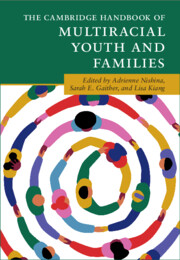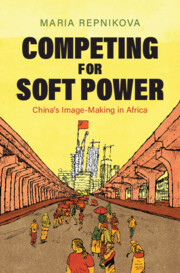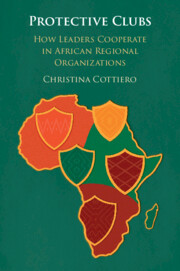Refine search
Actions for selected content:
3410434 results
Adjudicating African Women's Rights
- The Jurisprudence of the ECOWAS Court
- Coming soon
-
- Expected online publication date:
- July 2026
- Print publication:
- 31 July 2026
-
- Book
- Export citation
The Problem of the Devil in Cappadocian Thought
- Coming soon
-
- Expected online publication date:
- July 2026
- Print publication:
- 31 July 2026
-
- Book
- Export citation
Mapping the Primordial Universe
- Theory and Observations of the Cosmic Microwave Background
- Coming soon
-
- Expected online publication date:
- July 2026
- Print publication:
- 31 July 2026
-
- Book
- Export citation
Hegel's Aesthetic Ontology
- The Event of Beauty
- Coming soon
-
- Expected online publication date:
- July 2026
- Print publication:
- 31 July 2026
-
- Book
- Export citation

Complex Photonics
- Fundamentals, Spin Glasses, and Optical Computing
- Coming soon
-
- Expected online publication date:
- July 2026
- Print publication:
- 31 July 2026
-
- Book
- Export citation
OSCEs for the Final CICM
- Coming soon
-
- Expected online publication date:
- July 2026
- Print publication:
- 30 June 2026
-
- Book
- Export citation
Relevant Logics
- Implication, Modality, Quantification
- Coming soon
-
- Expected online publication date:
- July 2026
- Print publication:
- 31 July 2026
-
- Book
- Export citation
Developing in Older Age
- An Integrative View
- Coming soon
-
- Expected online publication date:
- July 2026
- Print publication:
- 31 July 2026
-
- Book
- Export citation

The Big Picture as an Approach to the Study of International Relations
- Thinking With and Beyond Barry Buzan
- Coming soon
-
- Expected online publication date:
- July 2026
- Print publication:
- 31 May 2026
-
- Book
- Export citation
The Cambridge Handbook of Research Methods and Statistics for the Social and Behavioral Sciences
- Volume 3: Data Analysis
- Coming soon
-
- Expected online publication date:
- July 2026
- Print publication:
- 31 July 2026
-
- Book
- Export citation

Governing Corporate Knowledge Commons
- Coming soon
-
- Expected online publication date:
- July 2026
- Print publication:
- 31 July 2026
-
- Book
- Export citation
The Secret History of Language
- Language Change Unraveled
- Coming soon
-
- Expected online publication date:
- July 2026
- Print publication:
- 31 July 2026
-
- Book
- Export citation
African American Literature in Transition, 1940–1950
- Coming soon
-
- Expected online publication date:
- July 2026
- Print publication:
- 31 July 2026
-
- Book
- Export citation

The Cambridge Handbook of Multiracial Youth and Families
- Coming soon
-
- Expected online publication date:
- July 2026
- Print publication:
- 31 July 2026
-
- Book
- Export citation

Competing for Soft Power
- China’s Image Making in Africa
- Coming soon
-
- Expected online publication date:
- July 2026
- Print publication:
- 31 July 2026
-
- Book
- Export citation
Yugoslav Avant-Garde Music, 1945–1991
- Coming soon
-
- Expected online publication date:
- July 2026
- Print publication:
- 31 July 2026
-
- Book
- Export citation
Innovation's Heritage
- Insights on a Cultural Phenomenon from the Ancient Past
- Coming soon
-
- Expected online publication date:
- July 2026
- Print publication:
- 31 July 2026
-
- Book
- Export citation

High Current ESD
- Physics and Design
- Coming soon
-
- Expected online publication date:
- July 2026
- Print publication:
- 31 July 2026
-
- Book
- Export citation
Systems Architecting Urban Infrastructure
- Designing Complex Socio-technical Systems for Sustainable Cities
- Coming soon
-
- Expected online publication date:
- July 2026
- Print publication:
- 31 July 2026
-
- Book
- Export citation

Protective Clubs
- How Leaders Cooperate in African Regional Organizations
- Coming soon
-
- Expected online publication date:
- July 2026
- Print publication:
- 31 July 2026
-
- Book
- Export citation
